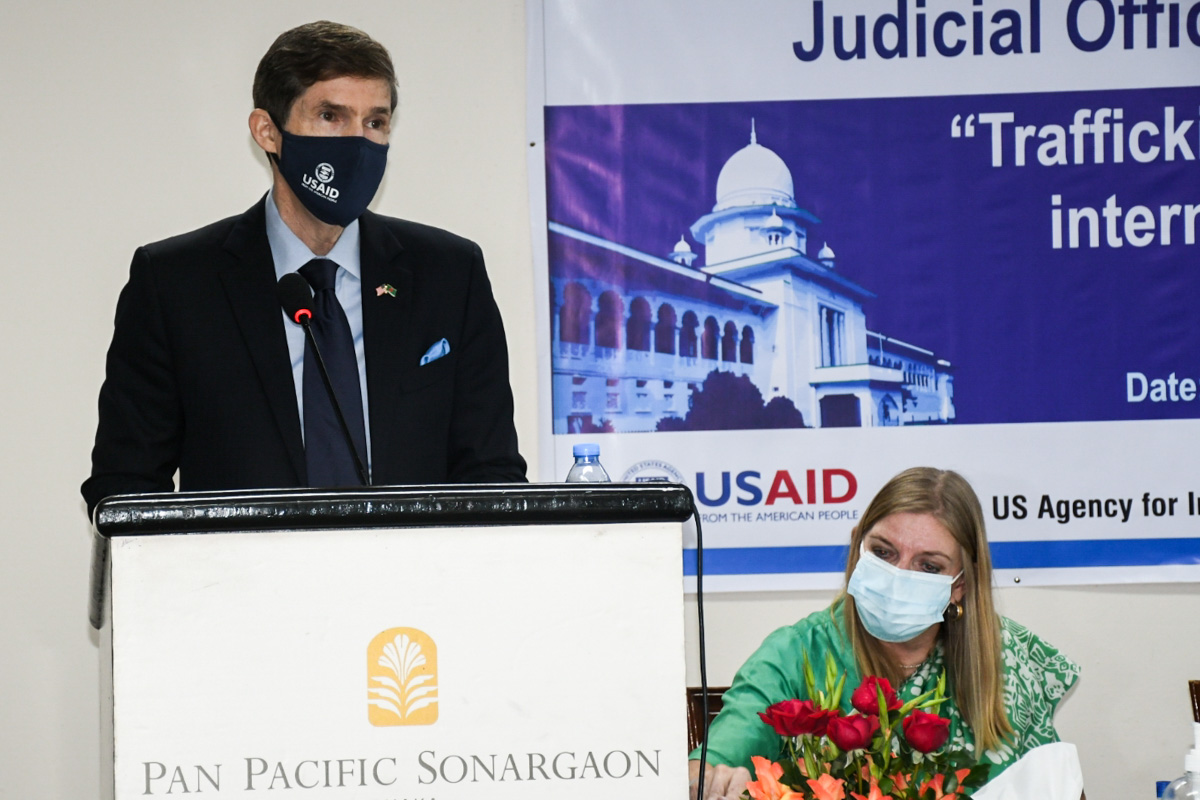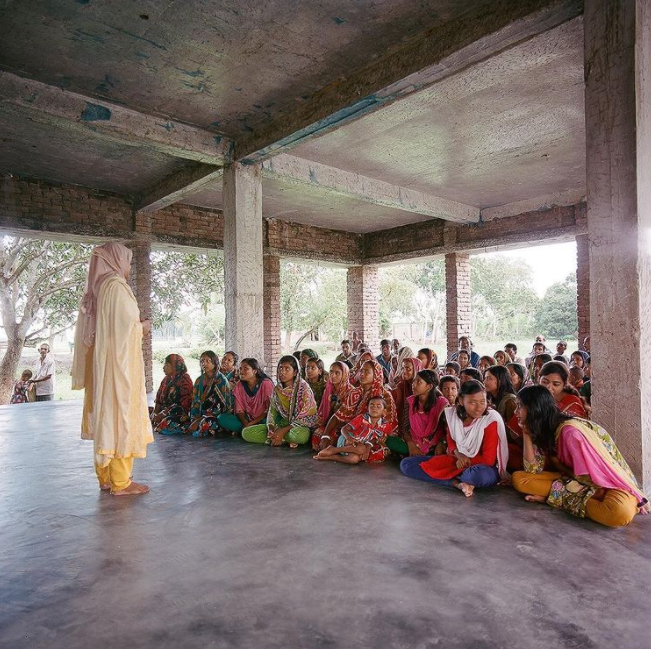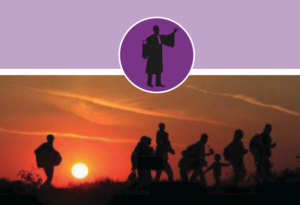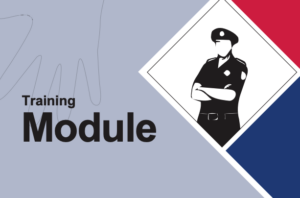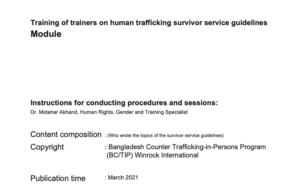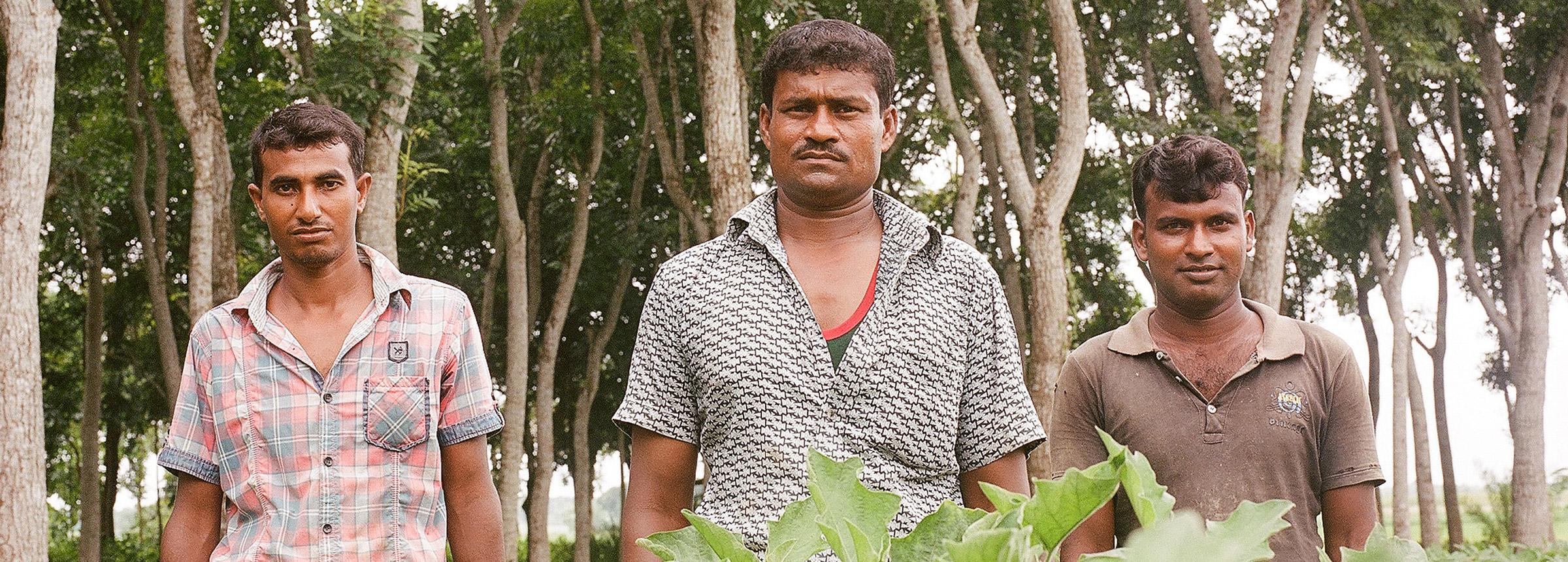
Legacy Project
Bangladesh Counter Trafficking-in-Persons Project (BC/TIP)
Though human trafficking is a global problem, successful efforts to combat it must start at the local level. Focused on 20 highly vulnerable districts, the Bangladesh Counter Trafficking-in-Persons Program aims to mobilize and coordinate the actions of local and national governments, non-governmental organizations, and citizens and community leaders. Program activities include: supporting and empowering survivors; increasing the effectiveness of prosecution; and engaging all layers of society to end human trafficking.
Funder: USAID
Project Timeline: This project was completed in May 2021.
Country: Bangladesh
Program Areas: Education and Countering Trafficking in Persons (TIP)
BC/TIP’s main objective was to reduce human trafficking and child marriage in Bangladesh in order to achieve improved protection of civil and human rights in six interrelated areas:
- Strengthened capacity of communities to identify and prevent trafficking-in-persons (TIP) and CM;
- Improved access of trafficking victims to assistance;
- Increased responsiveness of criminal justice actors to trafficking victims;
- Effective and coordinated partnerships among stakeholders to combat trafficking;
- Increased responsiveness of duty bearers and justice actors on child marriage issues; and
- Increased use of learning activities to improve performance and achieve results.
To achieve this, BC/TIP connected local and national government representatives, non-governmental organizations, the business community, community leaders, and citizens. The project prioritized the sustainability of CTIP efforts by strengthening community capacities to identify at-risk and vulnerable people, victims/survivors of trafficking and CM, and take action for their protection through a district referral mechanism and via volunteer groups, including youth Peer Leaders and survivor ANIRBAN groups.
BC/TIP was reinforced by the following theory of change: if awareness and capacities of community members to identify and take actions against trafficking activities, traffickers, and child marriage (CM); if access to support services by trafficking survivors and those at-risk and victims of child marriage is improved; if the responsiveness of criminal justice actors is increased; and if all concerned stakeholder partners to combat trafficking and child marriage are coordinated in effective way, then the prevalence of these human rights abuses and vulnerability factors in Bangladesh will be reduced.
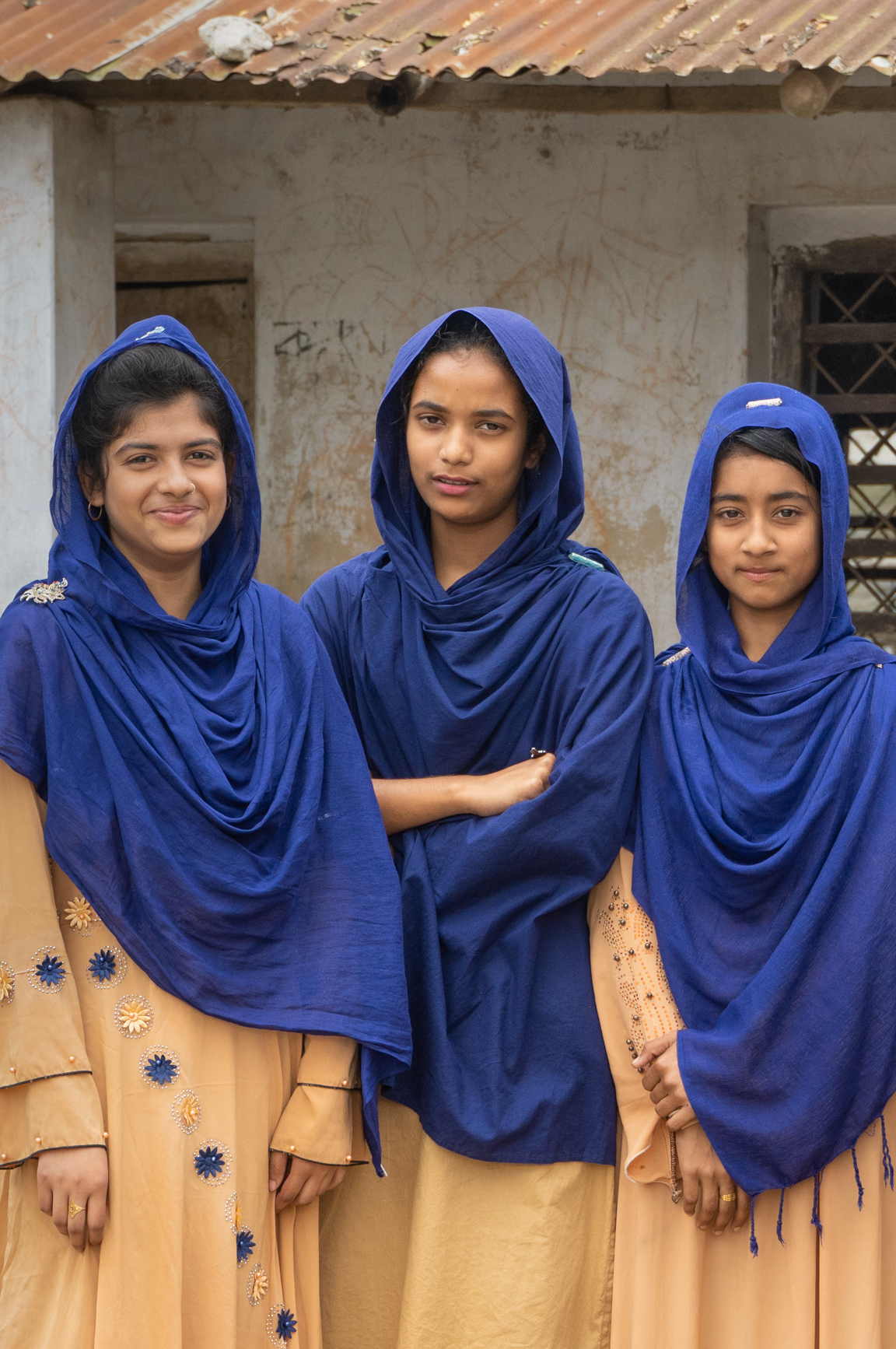
Changes to the context led to some significant changes in the approach and scope of BC/TIP in 2018, in response to the exodus of 700,000 Rohingya refugees from Myanmar into the Bangladesh Cox’s Bazar area. BC/TIP worked with the Rohingya population and host communities to address the increased risk of human trafficking, child marriage, and gender-based violence (GBV). In 2017 the Government of Bangladesh enacted the Child Marriage Restraint Act (CMRA), which enabled BC/TIP to integrate interventions against child marriage into its community-level efforts the following year, since CM is identified as a risk factor for human trafficking. Additionally, a Knowledge Management and Learning component was added to the project to reinforce the Collaborating, Learning, and Adapting mechanisms used in BC/TIP’s work enhancing the capacities of stakeholder groups for systematic change. BC/TIP conducted a situational analysis and needs assessment of male survivors in 2018 and in 2019, Bangladesh remained on the US State Department’s Tier 2 Watchlist for the third year in a row. BC/TIP, therefore, worked closely with the Government of Bangladesh (GOB) to prioritize and implement recommendations in the 2020 US State Department’s Annual TIP report, resulting in the country’s promotion to Tier 2 in 2021. BC/TIP was flexible and resilient in responding to the COVID-19 crisis, adapting their activities to virtual platforms and developing comprehensive contingency plans to maintain project continuity, including in Cox’s Bazar.
Priority Areas:
- Legislative Reform: Promote actions in partnership with the GOB and associated ministries to improve legislation addressing TIP, CM, migration issues to bring local or national laws into compliance with international standards.
- Enforcement: Support and augment GOB and criminal justice stakeholders’ methodologies to improve monitoring and enforcement of TIP, CM, migration laws and policies through increased knowledge and reinforce the community of practice to address existing gaps in the judicial, prosecutorial, law enforcement, labor, and child marriage prevention, protection, and prosecution systems.
- Coordination: Facilitate coordination among government and non-governmental assistance providing agencies in cooperation with national and local governments and stakeholders to build an effective national referral mechanism providing trauma informed-survivor focused care in partnership with the private sector and civil society stakeholders.
- TIP National Plan of Action: Provide technical assistance and strengthen the capacities and actions by the GoB and associated ministries to adopt and implement the National Plan of Action (NPA) for Prevention and Suppression of Human Trafficking 2018-2022, train CTCs and Prevention of Child Marriage Committees (PCMCs) ANIRBAN, Peer Leaders, and other key stakeholders to implement, promote, monitor and evaluate the National Plan of Action.
- Policies and Social Programs: Advocate with the GoB to implement national and local policies and programs aimed at reducing and preventing TIP, CM, illegal migration and improvements in practices and social programs to increase access to survivor informed services, trauma informed care, expansion of district referral directories, skills, livelihoods, and vocational training, social protection services, employment creation and/or poverty reduction initiatives for populations particularly at-risk or vulnerable for TIP, CM, illegal migration.
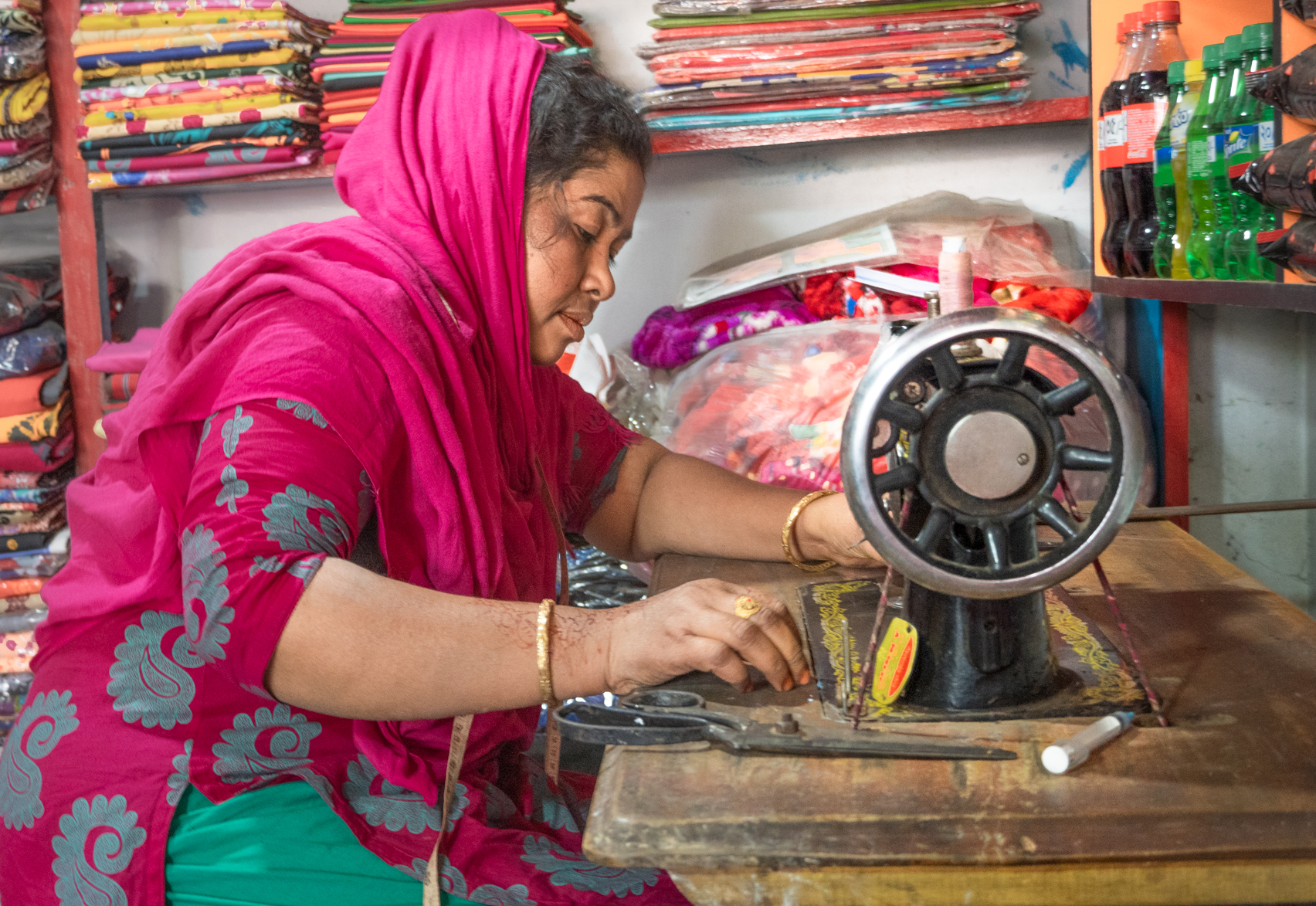
More About BC/TIP Program
The seven-year Bangladesh Counter Trafficking-in-Persons (BC/TIP) Program, funded by the US Agency for International Development (USAID) and implemented by Winrock International, works in 25 trafficking-prone districts in Bangladesh and with 12 sub-grantee non-governmental organization (NGO) partners to implement the 4P Paradigm (prevention, protection, prosecution, and partnerships) to mitigate human trafficking (HT) child marriage (CM), and to promote safe migration.

